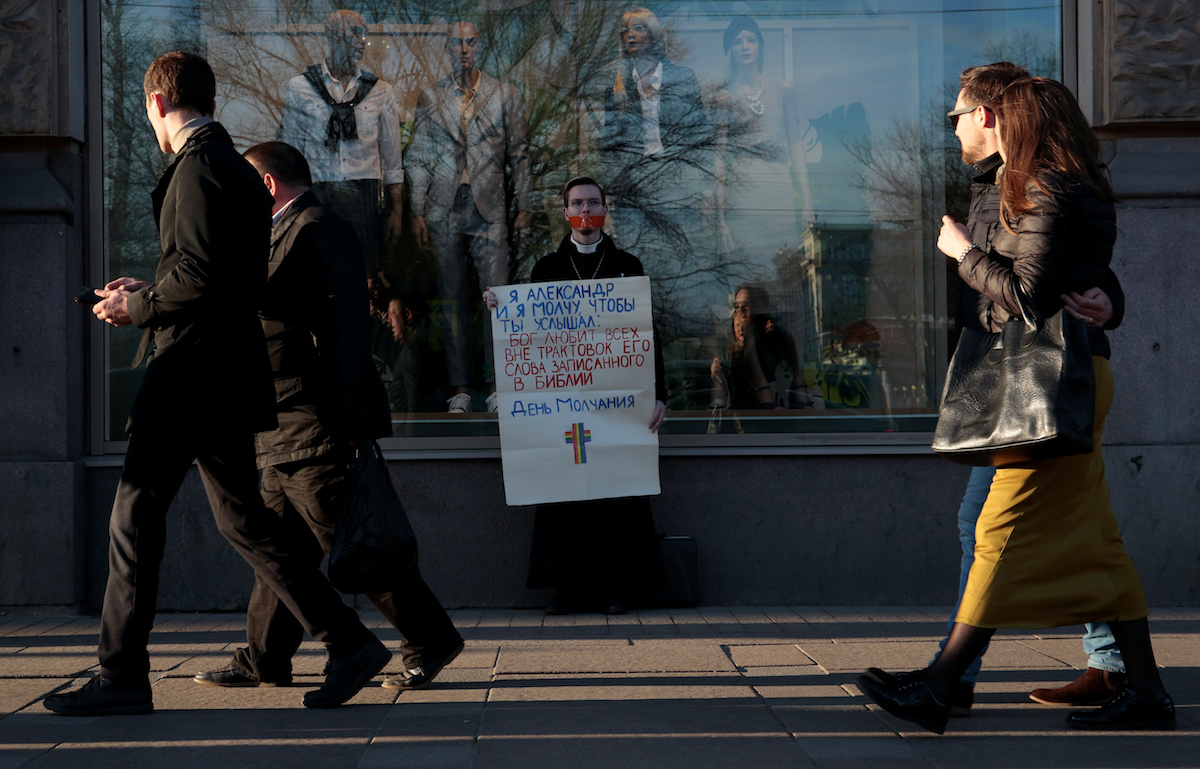Hatred, baiting, outing - a report on LGBT rights in Russia

Based on an article by Novaya Gazeta
The annual report on the situation of LGBT rights in Russia is based on a survey of some 5 400 respondents and also on the monitoring of discrimination cases and violence committed on the grounds of sexual orientation and gender identity. The period under review is 2016-2017.
The data gathered by the monitoring programme is not exhaustive as LGBT individuals in Russia are not always willing to speak out on cases of discrimination and they rarely appeal for help from the police or media.
A
ccording to the report, families become victims of discrimination when one of the parents comes out. There are also a number of cases in which teachers are involved: the persecution often begins with a denunciation after information has been gathered about an individual from his or her social media accounts and then presented to a teacher’s supervisor with a demand to ‘protect children from amoral influence’.
This was the case with one singing teacher in a music school in the Siberian city of Krasnoyarsk, Maria Shestopalova.
The informer, a resident of St Petersburg by the name of Timur Bulatov who is well known for such activities to human rights advocates, studied the school teacher’s profile online and told the school management, the Ministry of Internal Affairs and the mayor about her sexual orientation.
Moreover, instead of filing a suit against Bulatov for the distribution of personal information and invasion of privacy, the director of the school tried to convince Shestopalova to resign of her own will. Shestopalova refused up until the point where she was threatened to be fired ‘for committing an amoral act, incompatible with continuing work and fulfilling pedagogical functions’.
Another victim of Timur Bulatov’s was resident of Ekaterinburg, Yulia Savinovskikh, who is the guardian of three children.
The state took away two of Yulia’s adopted sons after Bulatov accused her of being a transgender individual.
Bulatov’s suspicions arose because Savinovskikh had a blog written in the name of a transgender individual who had an operation to remove mammary glands.
Yulia Savinovskikh appealed to a court which refused to return her children. However, the right to change one’s gender is provided for in Russian legislation and there are even several examples of successful cooperation between the state (the Ministry of Health) and Russian transgender individuals.
For example, last year a federal project was prepared between government officials and LGBT individuals on the basis of which those that have changed their gender could receive a new birth certificate. Before this, Russian transgender individuals had a number of problems when dealing with the country’s administrative bodies, and were forced to live with their old passports.
They could not get work, buy train or plane tickets. It was even problematic to receive medical services.
One of the transgender women in the survey said that paramedics refused to give her an antihistamine shot for Quincke’s edema because her passport carried her former male name.
What would have happened to the girl is anybody’s guess had her mother not blocked the ambulance and not called on the doctors to act.
The
Russian authorities propagate an anti-LGBT narrative and deny that this policy has anything to do with hate attacks related to gender or sexual identity.
The murder of Dmitri Tsilkin is an even more demonstrative example. Twenty-two-year-old student Sergey Kosyrev openly admitted to killing Tsilikin because of his sexual orientation, and called himself a ‘cleanser’ on a ‘crusade against gays’. The investigation did not classify the murder as a hate crime, and that the murder ‘happened suddenly during an argument’.



















